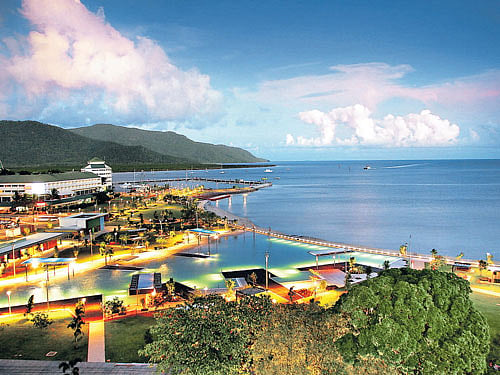
Increased tourist activities near sea shore and a surge in coastal construction may become a reality, if the NDA government listens to the recommendations of an expert panel that reviewed the existing coastal zone regulation (CRZ) norms.
Responding to the demands of coastal states, the panel suggested relaxing the “no development zone” that would not only boost tourism, but also aid the locals to expand their houses. In the no development zone (NDZ) and in the inter-tidal area, temporary tourism facilities such as cyclone shelter, toilets, wash rooms, change rooms, drinking water facility and temporary shacks can be built with the permission of the local authorities.
The total space, however, should not exceed 33% of the area.
The panel, headed by former earth sciences secretary Shailesh Nayak, was set up by the NDA government after it received submissions from Karnataka, Maharashtra and Kerala pointing out how the CRZ, 2011, regulations approved by the UPA government was hampering the development works and tourism activities near the coast.
The panel recommended reducing the NDZ to 50 metres from the high tide line–as against 200 metres in the existing norms–in the densely populated rural areas and 200 metres in other rural areas.
“The CRZ Notification, 2011, has many ambiguities with regard to High Tide Line-Low Tide Line mapping and CRZ boundary demarcation, which are prerequisites for coastal zone management programme, the preparation of which is considerably delayed,” says the panel.
Relaxing the existing rules, the panel allowed construction on the landward side of the existing road or proposed roads in the CRZ-II area that are close to the shoreline.
These activities would come under local town and country planning regulations, reducing the scope for the Centre to intervene. The environment ministry is yet to implement the recommendations that largely empower the state governments and local civic authorities to decide on the activities near the shore, provided the water and the beach is not polluted and shorelines remain unchanged.
Mumbai and other parts of Maharashtra–home state of environment minister Prakash Javadekar–would benefit largely from the changed rules as the panel proposed a market-linked calculation of the floor space index (FSI) in the CRZ doing away with the fixed FSI in the present norms.
